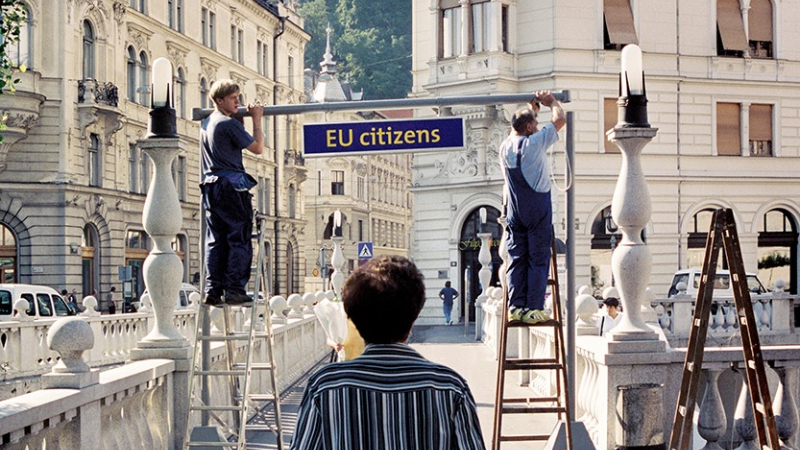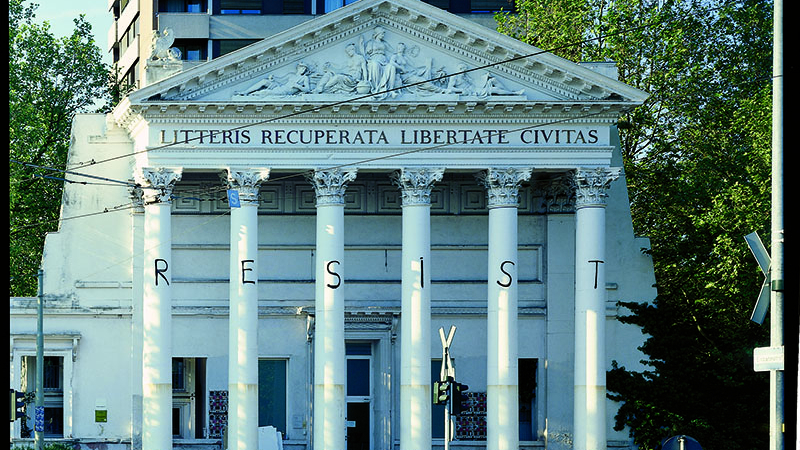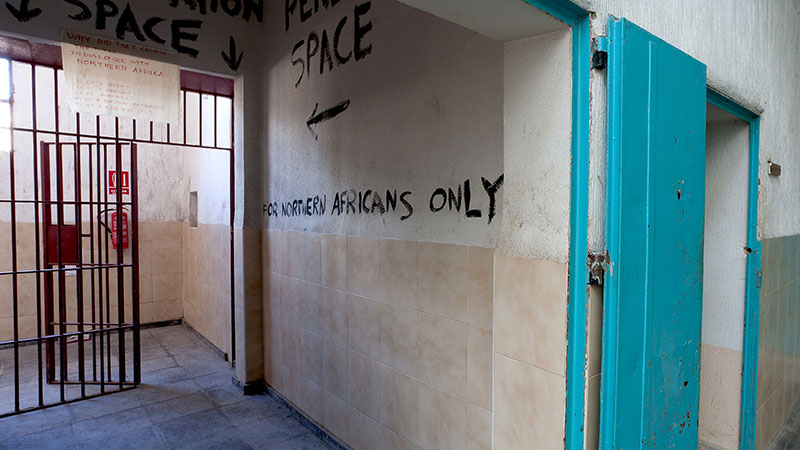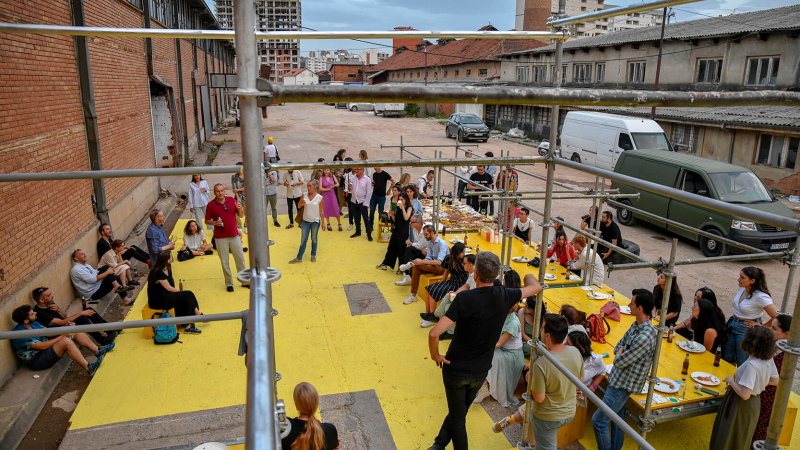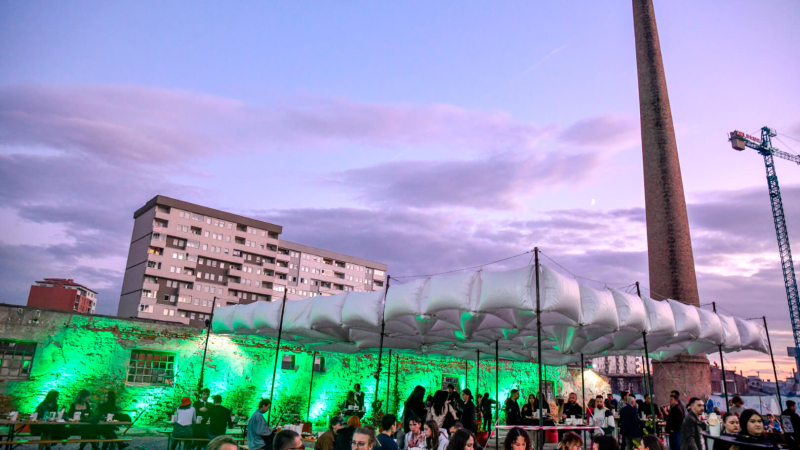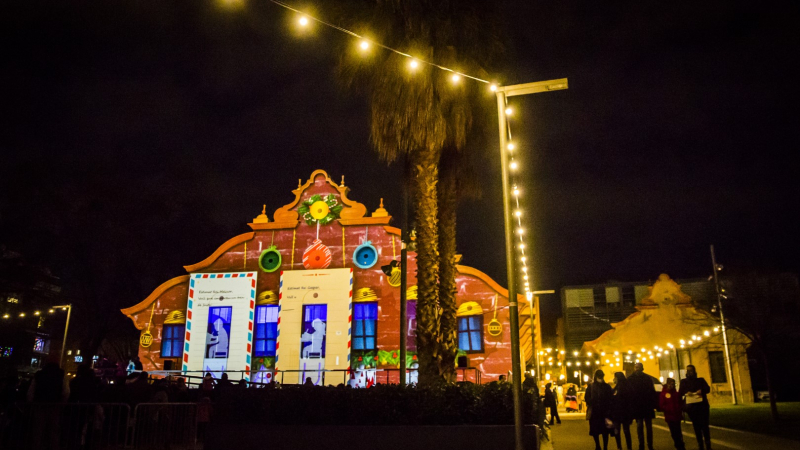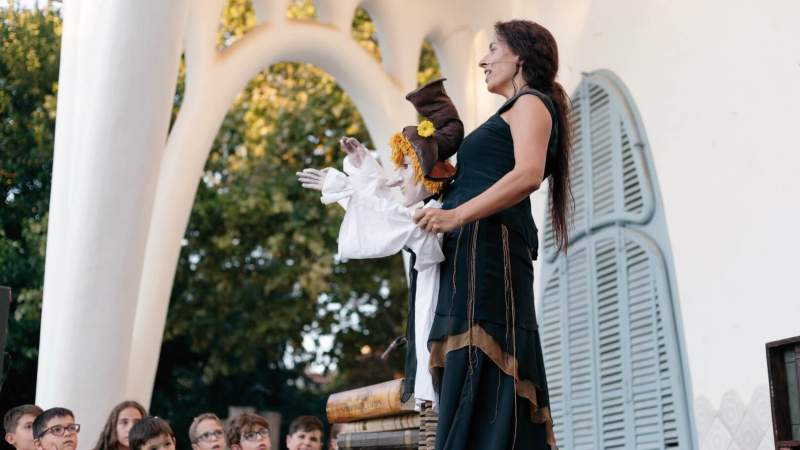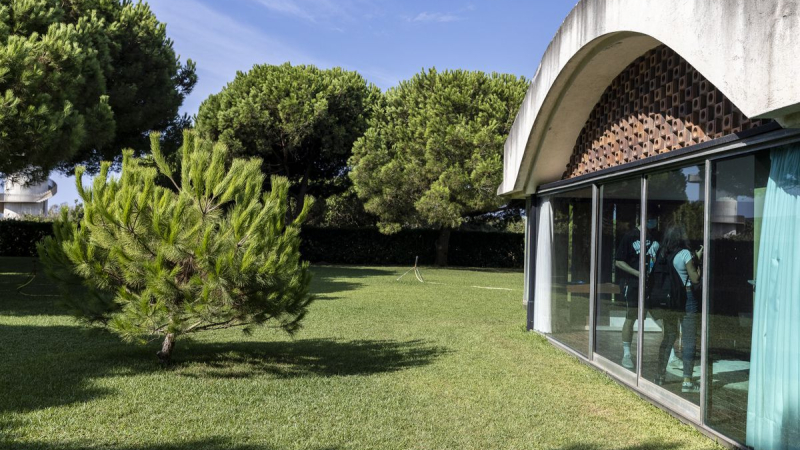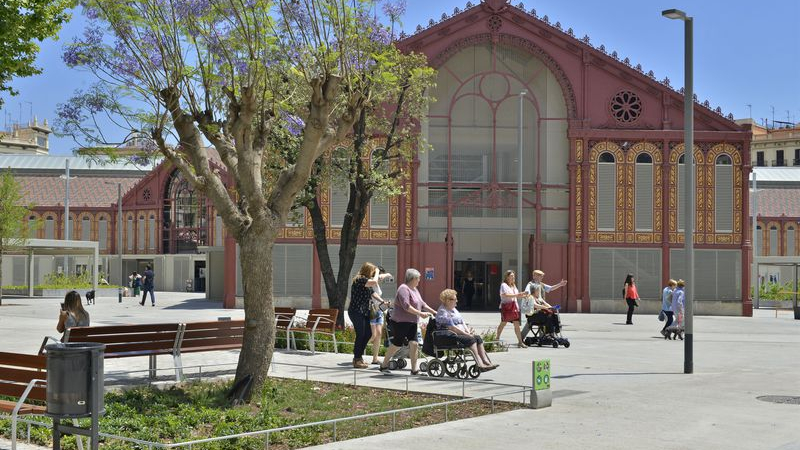Presentation
‘Manifesta, the European Nomadic Biennial’ is an itinerant European biennial of contemporary culture, and one of the most prestigious art projects in the world. In 2024, Barcelona and ten other cities in the metropolitan area will be hosting Manifesta 15 which will feature an extensive cross-cutting cultural programme.
-
‘Manifesta, the European Nomadic Biennial’ is an itinerant European biennial of contemporary art, and one of the most prestigious international contemporary art events. Manifesta is the only nomadic biennial in the world, changing location for each edition. Barcelona and its metropolitan area will be hosting the 15th edition of the event in 2024, and will be putting on an extensive programme of cultural events.
Biennial literally means "two years" and can be used to describe any event with that duration. It is a term commonly used in the art world for international events and large-scale art exhibitions held every two years.
The most recent editions of Manifesta took place in the following European cities: Priština (2022, Marseilles (2020), Palermo (2018), Zurich (2016), Saint Petersburg (2014).
The next editions of the event will be held in Barcelona (2024) and in Germany’s Ruhr region (2026).
Manifesta has become an outstanding nomadic platform dedicated to dialogue between art and society in Europe, and how this can combat polarisation and division. As host city, Manifesta has always chosen a European city that can act as a prototype of the world of the future. In November 2020, the Supervisory Board of the International Foundation Manifesta (IFM), the current managing body of the Amsterdam-based biennial, selected the city of Barcelona, along with ten other municipalities within its metropolitan area, as the host city for Manifesta 15.
Manifesta's aim is to provide a framework for reflection on the world through the lens of the artistic creativity and social commitment that emerges from dialogue between ordinary people, organisations, and artistic and social communities in a given area. Each edition of Manifesta involves a programme of activities that will take place over a period of two or more years. This includes a wide range of studies, publications, meetings, debates and lectures culminating in a final three-month programme in the host city. In this way, Manifesta seeks to create a space for debate and thought creation that addresses and links current international artistic and intellectual polemics and the major issues that are specific to the host city.
Manifesta is much more than simply a great exhibition space for the visual arts with no connection to other disciplines. It’s a major cross-cutting event that generates knowledge and research on cultural sustainability and art, understood as something that takes place within the creative and social community of the European city in which it is held. Manifesta seeks connections and synergies between art, urban planning, architecture and literature to further its mission as an interdisciplinary platform working for social change.
-
Manifesta was founded in the early 1990s as a nomadic European biennial of contemporary art, in response to the new political, cultural and social reality that emerged with the end of the Cold War. The initial ideas for Manifesta emerged after the fall of the Berlin Wall in 1989, a time of integration and assimilation in the new Europe.
The name of the nomadic European biennial derives from manifestare or manifesto, from the Latin 'to make something visible'. The conceptual idea came from German art dealer René Block of the Fluxus group who was a member of the first advisory committee and came up with the name Manifesta.
Since its beginnings, Manifesta has been rethinking the relationship between culture and civil society, researching and helping to foster positive social change in Europe through contemporary culture as part of an ongoing dialogue with society and the communities within the host city. Historically, Manifesta has chosen as host cities those that reflect the spirit of a Europe that is constantly evolving, to enlighten a world defined by changing ethical and aesthetic imperatives. Today Manifesta is a multi-layered platform for political, social and artistic reflection that incorporates civic engagement projects.
In the early days, as a biennial, Manifesta organised a series of contemporary art exhibitions in the host city. However, with the aim of making the event more responsive to the interests and needs of the cities where it takes place, it has now become an interdisciplinary platform, a generator of knowledge and research with a focus on participatory activities with local communities. As a recurring event, Manifesta has become a multi-layered and inclusive tool for citizen participation projects.
Today Manifesta is a platform centred on dialogue between art and society that invites the cultural and artistic community to come up with new creative experiences that both interact with and celebrate the context in which it is held. Manifesta questions the existing relationships between culture and society, researching and helping to bring about positive social and environmental change in Europe through contemporary culture in general, in a continuous dialogue with society in a specific location.
-
On 27 November 2020 in Amsterdam (The Netherlands), the Manifesta Supervisory Board chose Barcelona, as the Catalan capital, together with ten other municipalities in its metropolitan area, as the host city for Manifesta 15.
Manifesta 15 will be held in Barcelona and in Badalona, Cornellà, Granollers, L’Hospitalet, Mataró, Prat de Llobregat, Sabadell, Sant Cugat, Terrassa and Santa Coloma de Gramenet.
The event will be metropolitan in scope, and will have a major impact on the city's art network, as Manifesta is designed to promote the creative sector in the host regions.
The announcement that Barcelona and the metropolitan area will be the venue for the next edition of the Manifesta art biennial is an opportunity to initiate a process of co-design of its content, based on a system of governance that recognises and includes the city's art network and major facilities, promoting coordination within the sector. The holding of Manifesta in Barcelona will make it possible to promote, strengthen, expand and project the processes of structural transformation within the artistic context, taking into account the hybridisation of creative languages and cooperation at all levels.
The positive response and the acceptance of the candidature of Barcelona and its metropolitan area by International Foundation Manifesta (IFM) is based on the fact that the proposal aligned extremely well with Manifesta’s overarching objective, which is to involve residents, organisations and groups in the task of reinventing our world through artistic creativity and social commitment.
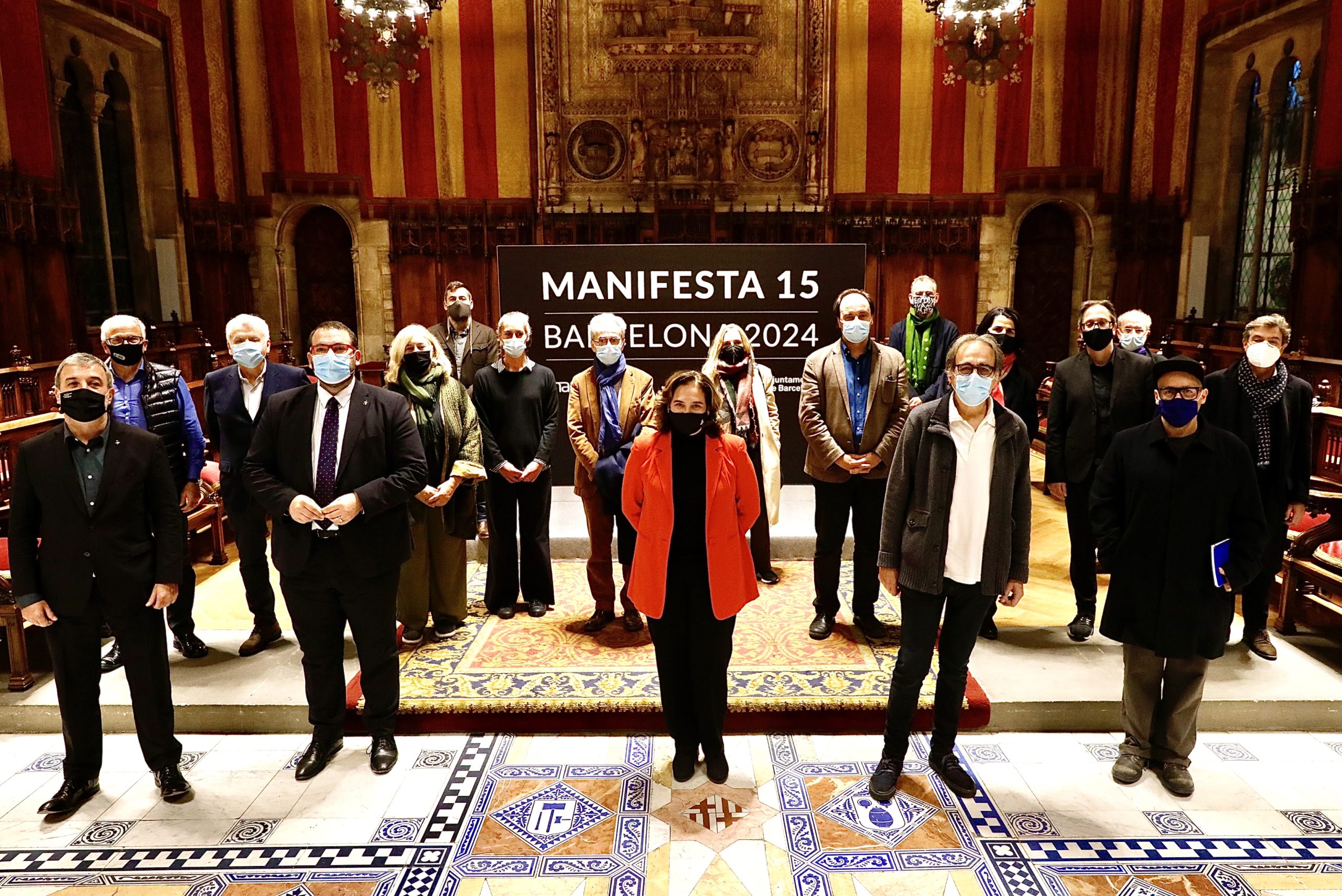
“Manifesta will be a great forum for research, experimentation and initiatives that will bring the creative sector, institutions and the people of Barcelona together. A process designed to broaden the rights to access and participate in culture without discrimination on the grounds of ethnic origin, gender or class. Barcelona and its metropolitan area puts the robust structure of its visual arts ecosystem, the support of public and private administrative bodies and individual independent initiatives at the service of Manifesta 15”.
Statement from Ada Colau, Mayor of Barcelona
Barcelona's proposal for Manifesta 15 consists of turning the city into a sort of 'laboratory' over the next two years, creatively and innovatively designing new artistic prototypes or 'ways of doing' that will generate new cultural centralities at a metropolitan level. Moving away from ‘centre’ and ‘periphery’, away from the idea of a single centre to a networked map of interconnected centres.
Manifesta 15 will design a series of activities and projects with all the agents involved based on a metropolitan vision, and with the aim of establishing an ongoing coordination between municipal cultural projects that will extend beyond the biennial.
To achieve these goals, the whole of the preparation process prior to the final event will work on the pairing of culture and education, with a view to positioning Barcelona as a leader in terms of education and artistic mediation.
In Barcelona, Manifesta will explore innovative dynamics and urgent public debates: sovereignty as a topic and as a political process within the framework of the challenges posed by globalisation, the democratisation of public life, the defence of public space in the face of privatisation, the need to combine social progress with tackling environmental challenges, the fragility of housing systems, movements of people, capital and data, and economic and ecological crises.
-
Manifesta strives to move away from what are often seen as the dominant centres of artistic production, instead moving towards more permeable and potentially fertile contexts to replace the concepts of geographical centre and periphery with the notion of many interconnected centres. Manifesta 15 aims to establish long-term collaboration between cultural projects in the municipalities that will continue beyond the biennial. It is a cultural project that aims to act as a driving force and a lever for the social transformation of the host cities through art and urban planning.
Each Manifesta biennial explores and reflects on art, community, grassroots culture, history, urban space and the modernity of the host city from a European perspective. It does so by involving the general public both locally and internationally in new ways of doing things, and new forms of artistic expression to bring about positive social change in Europe through collective artistic, educational and mediation processes.
Precisely because of this desire to promote community debate, Manifesta 15 is aimed at everyone in Barcelona and its metropolitan area. In particular, the nomadic biennial invites the cultural sector and civil society to participate - local residents, activists, creative communities, public facilities, creative spaces, civic centres, neighbourhood organisations, third sector and grassroots cultural organisations, and opinion leaders in the fields of culture, architecture, science, education, urban planning and activism.

